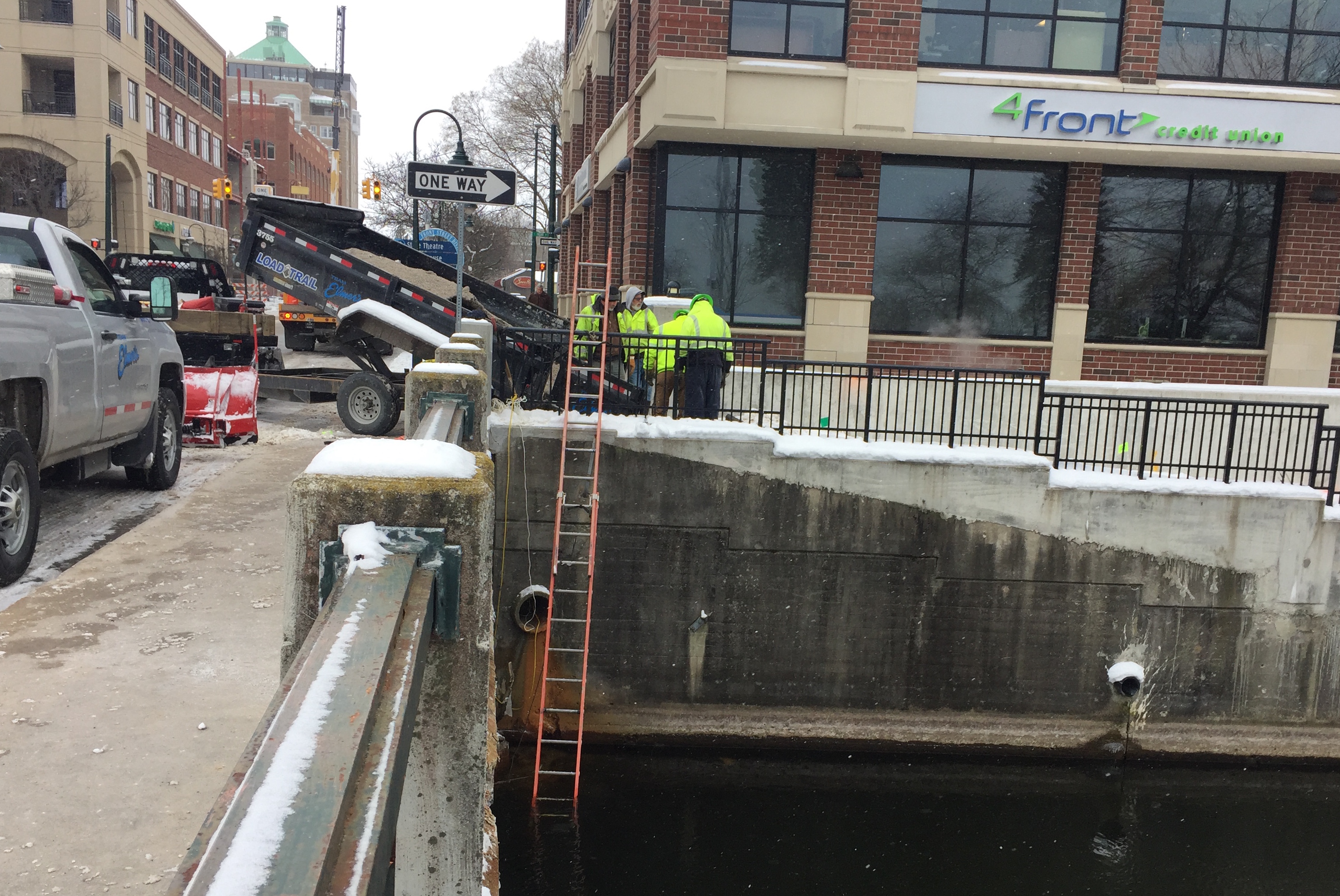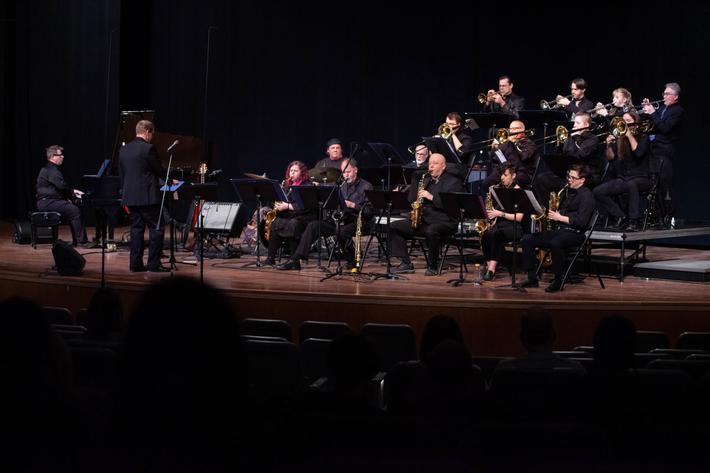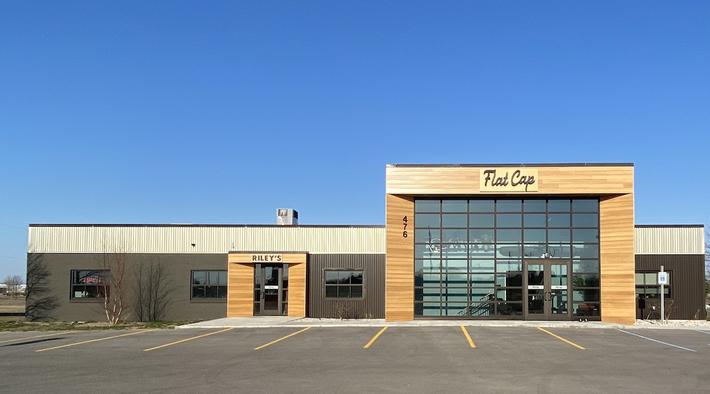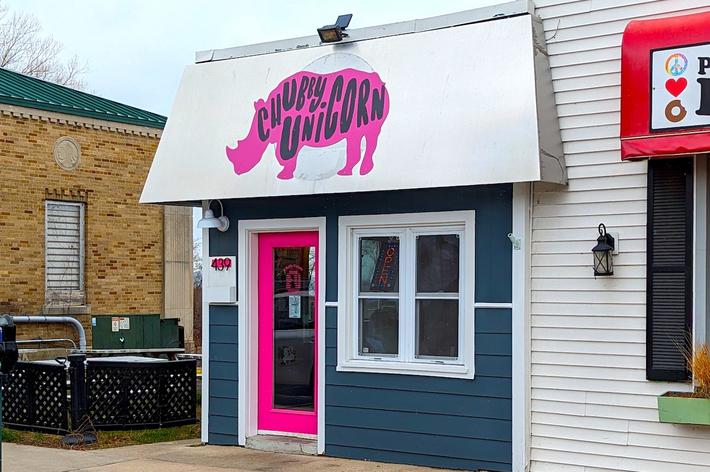
Out Of The Loop
By Patrick Sullivan | Feb. 11, 2017
Discharges of water from geothermal energy systems at two Traverse City properties have raised questions about whether this green technology could have an environmental downside.
Staff at Watershed Center Grand Traverse Bay take their mission to monitor the area’s waters seriously, so when someone spots unexplained fluid flowing from a pipe into a creek or river, they try to get answers.
This happened twice recently when water pumped through open loop geothermal climate systems was found flowing into the Boardman River and a tributary to Kid’s Creek.
This is troubling, said Christine Crissman, Watershed’s executive director. Water that has been heated could threaten cold water ecosystems. Water from a contaminated groundwater source could threaten water quality.
A Question Loop
Geothermal systems transfer the heat of the earth into renewable green energy, but Crissman said in certain cases – such as 101 N. Park in Traverse City and Cordia at the Grand Traverse Commons – there is reason to be concerned about possible negative side effects.
It’s possible the water outflows are harmless. If the water is clean and the temperature is close to the temperature of the water it’s flowing into, it wouldn’t adversely affect the environment.
That’s the case at 101 N. Park, said developer Thom Darga. He said the building’s geothermal system was state of the art when it was designed in the mid-2000s, that the water is from a clean source, and that its temperature doesn’t adversely impact the river.
Darga said when his hybrid geothermal system was constructed, its “pump and dump” use of water fell below the threshold that required permits. “There’s a lot of activities that are use by right,” he said.
T. J. Andrews, the Watershed Center’s attorney, said that’s news to her. She said a city ordinance requires a permit for any kind of fluid discharge into the river. What’s more, the city does not allow private wells.
Crissman said that as she understands it, what was proposed at 101 N. Park prior to construction was a closed loop geothermal system, meaning the fluid would be contained in the pipes and constantly recirculated, rather than an open loop system in which water is pumped from a well and discharged after.
Records in the city’s engineering department support Crissman’s hunch – the plans do not include a well connection or a discharge pipe, and no permits related to an open loop geothermal system were issued.
“As far as we know, that site was supposed to be a closed loop system that has a well,” she said. “But it’s discharging into the city stormwater system.”
A Constant Flow of Water
A constant stream of water flowed from a pipe under 101 N. Park until Feb. 2, when workers closed the outflow because city officials said the storm sewer had failed. It remains unclear where the flow of water was redirected.
Andrews said water flowed from that pipe this summer even after days of clear skies when the storm sewers should have been dry. That’s what alerted her to the possibility that 101 N. Park was discharging water.
Crissman said what’s concerning about 101 N. Park’s geothermal design is that the water likely comes from a groundwater well. In recent years, downtown wells have been notoriously contaminated, which means it’s very possible that contaminated water flowing through the pipe was being pumped directly into the Boardman River a short distance from Grand Traverse Bay.
“If they’re pulling ground water up that potentially has contaminants in it, then they’re running it through their system and discharging it warmer and with those potential contaminants [in it] straight into the river,” Crissman said.
She said she doesn’t know whether the water was contaminated, as she’s been unable to learn whether the discharged water has been tested.
“I know nothing about the contamination of the ground water. I just know there’s a lot of areas downtown that are contaminated,” she said.
“The Standards of What’s Allowed”
Darga said the water is harmless and that 101 N. Park was constructed to be an environmentally friendly building.
In fact, Darga won an Environmentalist of the Year award in 2011 from the Northern Michigan Environmental Action Council because 101 N. Park is a LEED-certified green building.
Darga said the system at 101 N. Park is a hybrid geothermal system, meaning part of it is closed loop and part of it is open loop. He said a closed loop system warms the building by heating the cement floors. The building is then cooled in the summer by an open loop heat pump that sucks out the warm air.
“There’s a discharge to the storm sewer of water passing across the heat exchanger that mediates the temperature in the summer months,” he said. It’s clean water, Darga clarified, that isn’t heated much above the river’s water temperature.
He said the system fell “within the standards of what’s allowed” when the building was designed and constructed. He said water discharges like the one at 101 N. Park could only pose a threat to the environment if people started putting those kinds of pipes everywhere. Perhaps, he added, that’s why the city now says open loop systems are no longer allowed.
More and more developers want the benefits of geothermal heating and cooling, and Darga said he’s proud of the development. The property was for years known as “the hole,” an eyesore no one could figure out how to remediate.
“It exceeds what the DEQ [Department of Environmental Quality] required. We rendered the site itself from a brownfield to a greenfield [development],” he said. “It’s easy to do just what you need to do and not an ounce more. [But] this is downtown Traverse City. Why would someone do the least, considering where we are?”
Darga, who has a proposed development in the Warehouse District currently pending before city commissioners, said his new development will feature a closed loop geothermal system.
“Pretty Much Unacceptable”
Watershed Center staff happened upon the discharge at Cordia by accident as they were surveying the area for future restoration projects around Kid’s Creek.
“As part of the process of looking at the stream and going out and figuring out what we’re going to do, we noticed the discharge,” Crissman said. “[It] has a direct outflow right into a tributary to Kid’s Creek, and we’ve tested that outflow and the temperature is 10 to 20 degrees higher at that outflow than it is upstream, and then it takes a significant amount [of time] before it actually cools back off downstream.”
The Cordia system uses city water. Crissman is also concerned about what effect the chlorine in that water could have on Kid’s Creek.
“Kid’s Creek is already on the impaired waters list due to bad habitat and basically having too much storm water, and we’ve spent about $5 million in that area trying to put in best management practices to help get it off the list,” she said. “So there could be chemicals in there that are going into the stream, and there’s definitely the temperature piece.”
Crissman said the warm water could affect insect life, which in turn could impact the food chain and harm the fish population. She said she believes too much money has been invested in restoring the creek to good health to jeopardize it with a water discharge.
“For that site specifically, we have spent so much money just downstream to try to keep storm water and stuff out that a direct discharge to the stream is pretty much unacceptable,” Crissman said.
Low Impact Discharge
The Watershed Center alerted Michigan’s Department of Environmental Quality of the discharge from Cordia. The DEQ sent Cordia a violation notice, and the company is now trying to get an after-the-fact permit for the discharge.
Mike Parks, a member of Cypress Partners, a co-developer of Cordia, said what Watershed staff found is a minimal discharge of clean water that is allowed by DEQ rules. He said developers failed to get a permit because of an oversight.
“We just didn’t know it had to be done that way,” he said. “We didn’t realize that was even a requirement. But now we do.”
The DEQ fined Cordia several hundred dollars for the violation and is waiting for more information before deciding whether to issue a permit, said spokeswoman Melody Kindraka.
“We have received a permit application, but the permit application is incomplete,” she said. “We have contacted them to provide more information.”
If a permit is issued, the discharge would be monitored to ensure it meets Michigan’s water quality standards, Kindraka said.
Parks characterized the outflow as a “minimal discharge of clean water” that’s used to run a chiller-boiler system that’s used exclusively in warm months to cool the building.
The discharge is city water with a low chlorine content and is within a couple of degrees of the water in the creek, he said.
“The impact on Kid’s Creek watershed is virtually nonexistent,” he said.
“Then You Have All These Questions”
City Engineer Timothy Lodge, who spoke to Northern Express Feb. 1, the day before the pipe at 101 N. Park was removed, said the concerns raised by the Watershed Center have proven the city needs to develop requirements for geothermal systems.
He said he searched the file for 101 N. Park and could find no evidence that city staff approved an open loop geothermal system that included a discharge into the Boardman River.
For one thing, wells have been prohibited by city ordinance for decades. That means developers (and homeowners) could construct a closed loop system but not an open loop one because they would not be allowed to draw groundwater.
Lodge said the city hasn’t drafted the policies it needs to regulate geothermal. “We’ve been made aware by our water quality partners of their concerns, so we’re looking at our regulations,” he said. “We’re not there yet, but that’s the discussion we’ve been having.” He added, “Moving forward, we’re saying, ‘Okay, open loop systems are not allowed; closed loop systems are allowed.’”
Lodge said he doesn’t know if the discharge into the Boardman has been tested to make sure it’s clean.
Crissman said it’s frustrating to find out about something like a discharge into a river or a creek after the fact and only by chance. She hopes regulations for geothermal systems are codified and enforced.
“It’s a big concern, because the only thing you know and look at is the plans as they’re happening. You can look at this stuff and it seems great. ‘Great! A closed loop geothermal system downtown,’” Crissman said. “‘They’re going to have really efficient ways of heating and cooling.’ But then when you see it discharging, you have all these questions. You don’t know anything about it and you can’t really get answers about it. It’s difficult.”
Geothermal Explained
Geothermal systems, which can cut heating bills by 70% and cooling bills by over half of that, use water to carry heat stored in the earth to heat or cool buildings. The water is circulated in hundreds of feet of underground pipes until it reaches the ground temperature of around 56 degrees. Heat is then either taken out of the water in cold weather to warm the building or is added to the water in the summer to cool the building. The water then returns below ground, where it gradually returns to 56 degrees.
Along with solar, wind and landfill gas, geothermal is one of a handful of tools that officials plan to use to turn Traverse City into a green city, making its energy use 100% renewable by 2020.
The city also set a goal of making all energy used in the city renewable, including energy used by residents, by 2050. Geothermal installations in private homes will almost certainly be a part of accomplishing that.
Not many homeowners within Traverse City have opted for geothermal yet, but that could change, said Rex Ambs, an owner of Geofurnace in Traverse City who’s been working with geothermal systems for decades.
Ambs said that in recent years, natural gas prices have been low enough to discourage more expensive geothermal systems. Consequently, most of the geothermal systems he’s installed have been out in the country, where it’s cost effective to install them compared to propane or oil heat. As more people become interested in “net zero” homes, or homes that produce as much energy as they use through conservation and renewable energy, Ambs believes geothermal systems will be integral to making those homes happen.
A Geothermal Demonstration
The enormous Cathedral Barn at the Historic Barns Park at the Grand Traverse Commons is heated and cooled by a geothermal system.
Sarna Salzman, executive director of SEEDs in Traverse City, is helping to make the park a place for people to learn about energy. The geothermal system is an integral part of the “energy farm” concept SEEDs promotes.
SEEDs has designed signs to be installed this spring to explain how geothermal works. The organization wanted to install a small system that could be partially above ground so that people could see it and feel the hot and cold pipes, but that would have been too expensive.
“Once we priced it out, it was really cost prohibitive,” Salzman said. SEEDs also wanted to build something kids could play on but realized they’d be better off modifying a future project than building a stand-alone demonstration.
The geothermal system that’s already in place at the Commons was a collaboration between the City of Traverse City and Charter Township of Garfield Recreation Authority, Consumers Energy, Cherryland Electric and Traverse City Light & Power.
It was constructed in 2013 to demonstrate how the massive barn could be heated and cooled efficiently.
The system includes 16 loops of underground piping, each 300 feet long, that transfer fluid in a closed loop system to heat and cool the building.
Matt Cowall, the recreational authority’s executive director, said the system’s efficiency has exceeded expectations.
“Our worst electric bill in the last year or so has been right about a thousand dollars a month,” he said. That’s to run a 5,000-square-foot building with 30-foot ceilings and keep it cool in the summer or warm in the winter.
Trending

Springtime Jazz with NMC
Award-winning vibraphonist Jim Cooper has been playing the vibraphone for over 45 years and has performed with jazz artist... Read More >>
Dark Skies and Bright Stars
You may know Emmet County is home to Headlands International Dark Sky Park, where uninterrupted Lake Michigan shoreline is... Read More >>
Community Impact Market
No need to drive through the orange barrels this weekend: Many of your favorite businesses from Traverse City’s majo... Read More >>


